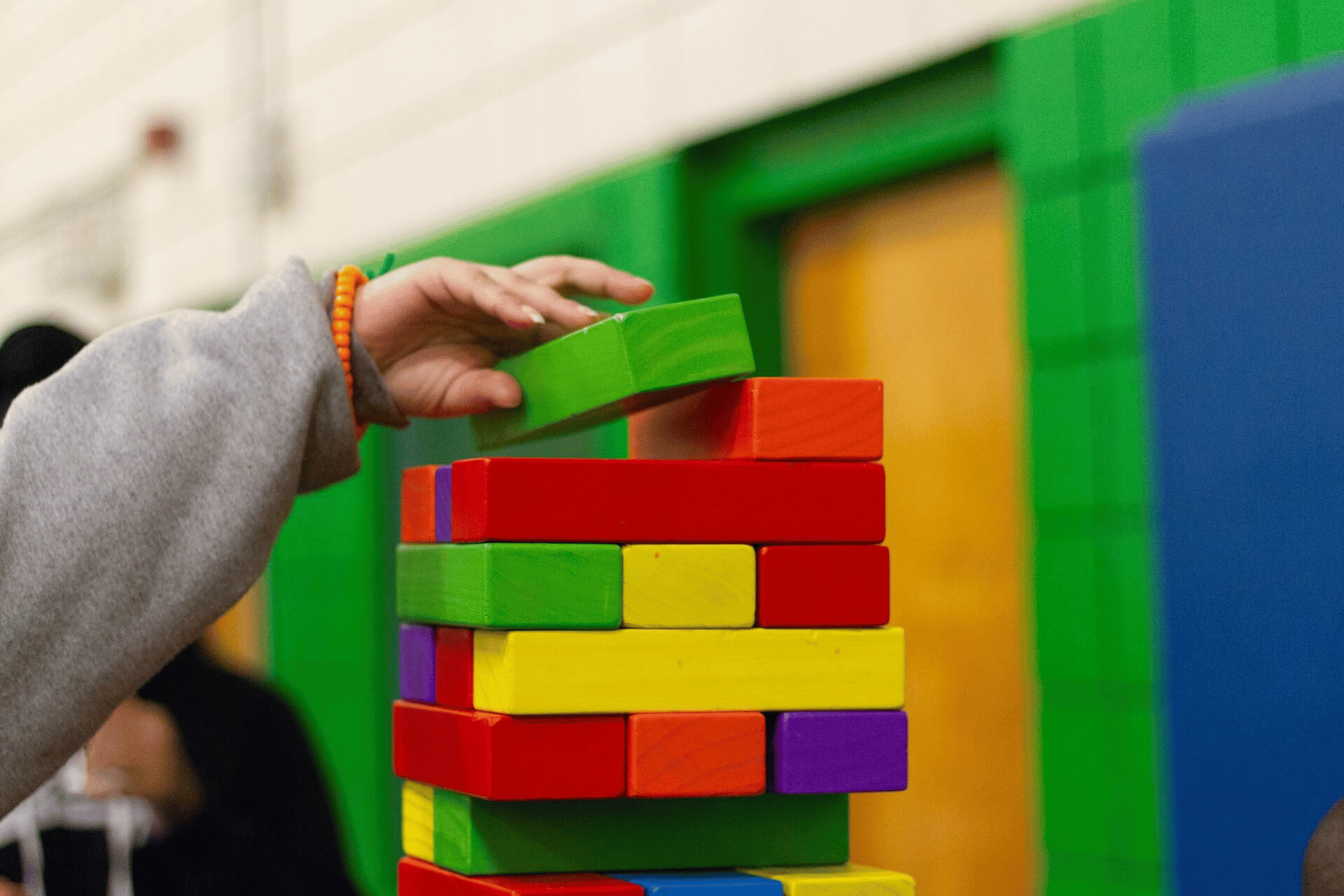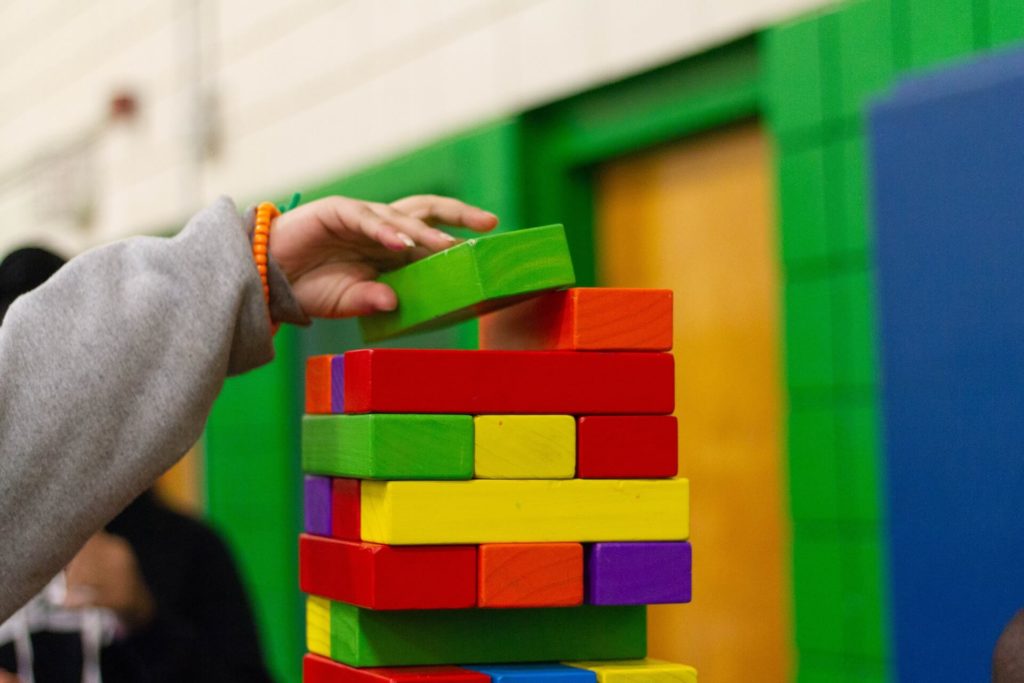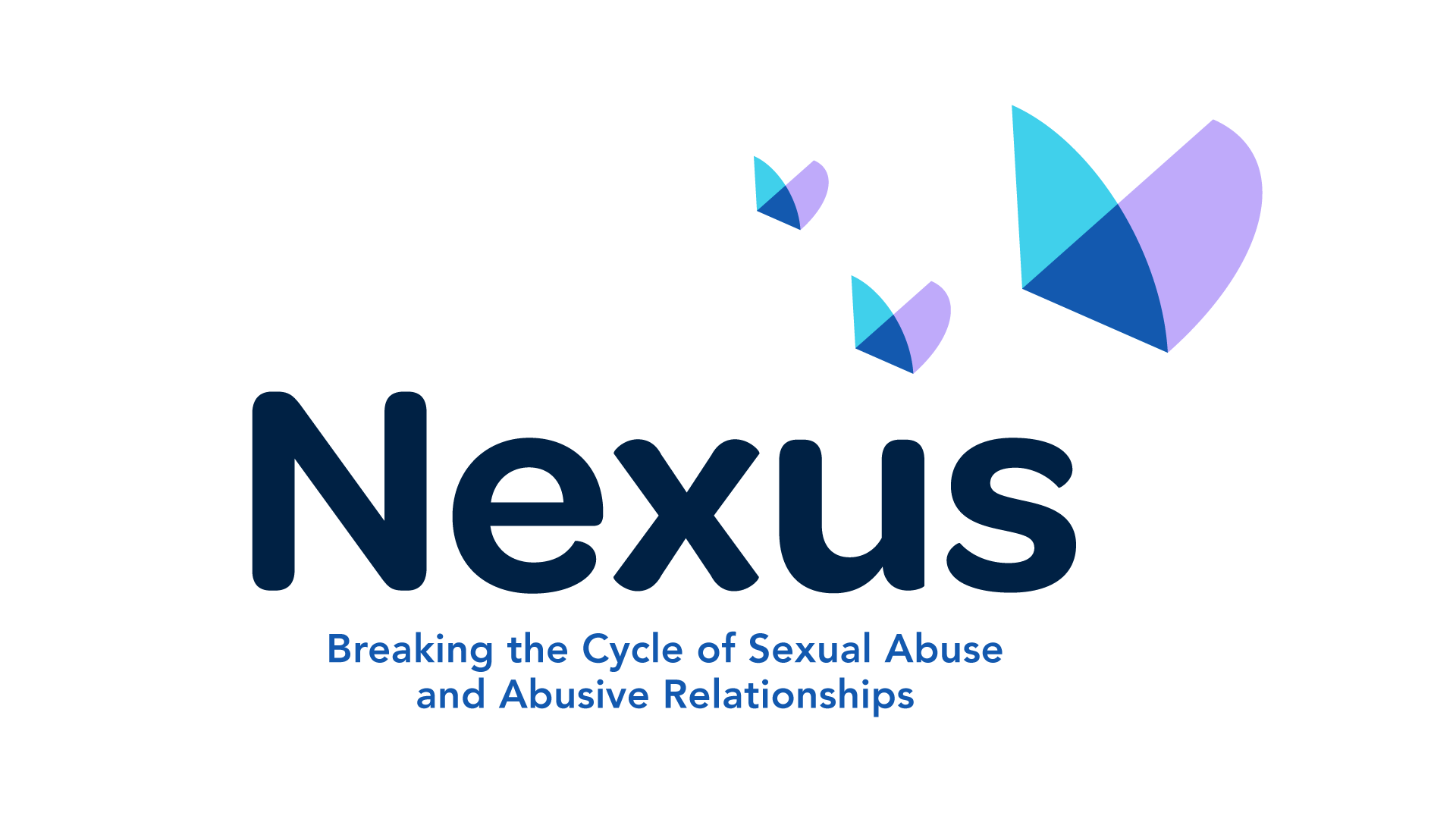Support for Children Impacted by Sexual Abuse
We support children aged 8+ directly impacted by child sexual abuse

Support for Children Impacted by Sexual Abuse
We support children aged 8+ directly impacted by child sexual abuse

We are pleased to inform that as of Thursday 1st February 2024 we have resumed our referrals from children aged 8+ as counsellor capacity has now increased and we are working hard to triage and prioritise referrals to the most appropriate supports available. Unfortunately referrals from children under this age are still unavailable until appropriate funding becomes available for this age group. Please note a waiting list will be in place as we work through the children who were already waiting.
#BreakTheCycle
Child sexual abuse: support for children & young people
Here at Nexus we provide support to those impacted by child sexual abuse, providing this support in the form of counselling to children aged 8 and upwards. We are accredited by the British Association for Counselling and Psychotherapy and the National Counselling and Psychotherapy Society.
Counselling provides a safe and confidential space for children and young people to explore their feelings and talk about their experiences. We offer children and young people emotional support for issues or challenges they are experiencing following being impacted by child sexual abuse.
We offer up to 12 sessions of specialist counselling to children and young people. These sessions are available to those aged 8+ and are appropriately tailored to age and the individual needs of each child. Sessions can include play and art therapy, as well as traditional talking therapy approaches. Take a look at our Client Journey guide to get an indication of how the process could look for your child by clicking here.
How can counselling help children impacted by child sexual abuse?
Counselling allows your child to talk with someone who is trained to listen attentively and to help them improve how they feel about themselves. At Nexus, all of our Children and Young People (CYP) counsellors are specialists in their area, and will adapt their styles to meet your child’s individual needs. All of our counsellors are committed to helping those impacted by sexual abuse and abusive relationships to recognise their strength and ability to make informed choices and create positive change.
At Nexus, details of counselling sessions are confidential. We keep all client information safe and only release information that will identity a client in certain circumstances.
Make a referral into Nexus services
To refer a child or young person to individual counselling please complete our secure online referral form for children who have been impacted by sexual abuse. Once we receive your referral, we will process it internally, and one of our team will be in touch to arrange next steps with you. Please be aware that we receive a high volume of referrals, but rest assured we will be in touch as soon as we can.
So we can be sure your child is ready to process their trauma through specialised counselling, we do ask that an initial self-referral form is completed so we can take you through our processes and assign or signpost you and your child to the most appropriate support. The needs of our clients are always at the heart of what we do, and we need this information to find the best support for your child. The link to complete a referral form can be found at the bottom of this page. If you need any support completing this form, you can contact our administration team who will be more than happy to help you.
Please note that given the nature of our work, everyone at Nexus is trained to communicate with empathy and compassion, however our admin team are not trained counsellors and are there to help you make a referral and assist with appointments. If you feel you need immediate support in addition to making a referral for your child, we encourage you to contact the 24/7 Domestic and Sexual Abuse Helpline on 0808 802 1414, help@dsahelpline.org or via live chat at dsahelpline.org. This service is available to anyone 16+, so is there to support you as a parent or carer of a child or children who have been impacted by abuse.
Click the button below to complete the referral form. If you have any queries about completing this form or the overall process, you can contact us via your preferred method and we will do our best to help you.
FAQs
We understand that you want the best for your child and that you may be nervous about them attending counselling where they may discuss a range of difficult topics. To put your mind at ease, we’ve gathered a list of frequently asked questions (FAQs) below. Click through to learn more about the counselling journey with Nexus might look like for you and your child. If you still have questions you’d like answered before making your referral, we’re more than happy to help. Simply contact us and one of our team will get back to you as soon as they can.
What happens after I make a referral?
Once you have made a referral via our referral form, one of our administration agents will be in touch to arrange an initial assessment to make sure that our services are right for your child at this time. When your child has been allocated a counsellor and an assessment has been arranged, the counsellor will be in touch to confirm the session, give any relevant directions and to gather any relevant information that you may not wish to share with your child present during assessment.
There may be a waiting list for our Children & Young People’s Counselling Service. The length of this waiting list depends on what location your child can attend counselling and at what time. We will always do our best to accommodate specific requests, however, since the majority of our CYP sessions are during the day, they will likely interfere with school hours. Depending on where you are based, you may need to travel some distance to our nearest regional hub.
How will my child be assessed?
We assess every client who is referred to our support services. The assessment will help:
- Explain the limitations of counselling
- Inform you of our policies and procedures on attending counselling
- Explain confidentiality and ensure that the child is in agreement to attend
- Ensure that Nexus is the most suitable service according to your child’s needs
- Assess if there risk and safeguarding concerns the counsellor needs to be aware of
- Gather details of background information and history, for example:
- Mental health concerns
- History of risk
- What other professional services are engaged with your child or family
- Family history
- Relevant school contact information
Will my child see the same counsellor every time?
Yes, consistency is important to us as professionals as it helps children and young people to build trust. So once your child has started counselling, they will meet the same counsellor every week for up to 18 weeks. Sessions last for up to 50 minutes, though this may vary depending on their age; for example, a younger child may respond better to shorter sessions.
What if my child doesn't want to talk about what's happened?
Your child will never be forced to talk about what happened to them. In fact, most children and young people never talk about their experiences in any detail. Our specially trained CYP counsellors will work with your child through art, play or other creative practices. Your child can still work through their feelings without having to disclose the details.
With the support of the CYP counsellor, your child can learn ways to manage the emotions and feelings that they may find very overwhelming. It is important that your child understands that although they never have to talk about anything they don’t wish to, and that their counselling session is a safe place to talk about anything they need to.
There may be times when it seems like your child attends counselling just to ‘play’ but they will be working therapeutically through their feelings creatively in a safe environment.
What if my child doesn't want to attend counselling?
Your child will never be forced to attend. A child being forced to attend would have the opposite effect we hope counselling to have. Sometimes children are not ready to attend counselling – it may be too overwhelming for them. Forcing them to attend when they are not ready would give them a bad experience of what counselling is, reducing the likelihood of them seeking support at an older age when they may be ready.
If your child decides counselling is not for them this time, all you have to do is let their counsellor know as soon as possible, and their counselling will end. You can refer your child back into our children service again at any time until they are 16. Once they have turned 16, they can refer themselves in to our adult services for people impacted by childhood sexual abuse. If your child has disclosed to their counsellor that they do not wish to continue, their counsellor will discuss this with you and then counselling will come to an end. It is very important that your child never feels any pressure to attend sessions.
Will I find out what is discussed in my child's sessions?
Your child’s counselling is strictly confidential. When you agree to your child attending our service it is with the understanding that what your child discloses in the session is private. If your child wishes to discuss sessions with you, they can do so freely. It is important that you do not pressure them into telling you what has been discussed, as sometimes it can create a barrier as to what they may or may not explore during their counselling sessions.
Their counsellor will not share what is talked about privately in the sessions, but will discuss with you any safeguarding concerns or any issues that your child has given them permission to share. The only occasions your child’s counsellor will discuss anything outside of the room will be if your child discloses one or more of the following:
- They are at risk from harm from themselves
- They are risk of harm from someone else
- Another child is at risk from harm
- A crime has been committed that has not been reported
- There is a safeguarding concern in relation to themselves or someone else that has not been highlighted with the appropriate services
If any of these matters arise, we will speak to you if appropriate to do so, or to another professional service if necessary.
Will the counsellor take notes in my child's sessions?
Yes, your child’s counsellor will take notes on their session. However, these notes are not detailed reports of the session, but instead are a guide to what emotions they have worked on or any safeguarding issues they may have. These notes are private and confidential. We do not share these notes with anyone outside the service. The only situation in which we would share notes is if we are ordered to by a judge; in this situation, only the judge will see the notes.
We understand that as a parent or caregiver it can be very worrying to not have access to all the information. We understand that if your child is struggling it can be very distressing and upsetting to not be a part of this process. Please know that our priority is to your child’s wellbeing and safety. This is paramount to both Nexus as an organisation, and our counsellors. We will never put your child at risk in any way by withholding information.
What do I need to know about appointments?
Our counselling consists of individual one-to-one sessions, meaning that your child will be attending the session alone. However, it is your responsibility to ensure your child is brought to and collected from sessions by an appropriate person.
If your child is unable to attend for any reason – for example holidays, exams, or any other reason, please let their counsellor know in advance with as much notice as possible. Where a session is cancelled more than 24 hours before it’s due to commence, it will not count as one of the 18 sessions. If your child is unable to attend due to illness or another emergency please contact the office on 028 9032 6803 as soon as possible to cancel the appointment. Should a session not be attended without contact or if it is cancelled within 24 hours of the session, then it will be counted within the 18 allocated sessions. If two sessions in a row are not attended without prior contact, then the counselling will automatically end.
Can my child have remote counselling?
Remote sessions are available, however, this depends on suitability as some children do not engage well with remote sessions. Children aged 5 to 9 years old are generally not suitable for remote counselling, therefore in-person counselling at one of our regional hubs or our main office in Belfast will be recommended.
Remote sessions are phone sessions, or video call sessions on Microsoft Teams. If the counsellor feels that remote counselling is not suitable for whatever reason, then that decision must be respected and face-to-face counselling will be offered if possible. All Nexus procedures still apply to remote counselling and the following must be strictly adhered to:
- You are on time and ready for the session as you would be for face-to-face sessions
- You provide a private and confidential space for your child to attend remotely
- No other person is in the room at any time during your child’s session
- There is an adequate and safe device for the child to use for sessions
- If the counsellor decides for any reason it is unsuitable to continue remote sessions, this is respected and honoured by Nexus
- There is a responsible adult in the same building as the child while counselling is taking place
What do I do if I have concerns?
If you have any concerns about your child or any information that may be relevant to the counselling process, you can ask their counsellor to contact you by phone privately at a suitable time outside the session.
If you are unable to speak to a counsellor directly in person when your child is attending a session, then you can contact the Nexus office and request a call back from the counsellor. They will try to do so when available but please note this may take some time. Counsellors only have access to email messages or calls during their hours of work and are not expected to respond outside of these hours.
Sometimes the counsellor may email you some resources to help support your child. Please never reply disclosing any private or personal information. Do not email if your child is at immediate risk or in a crisis – on these occasions it is paramount that you contact the relevant crisis services such as the emergency services on 999.
If you have any concerns about Nexus counselling practices or questions in relation to any of this you can contact the office on 028 9032 6803 and ask to speak to the Clinical Services Manager.
Can I get support from Nexus?
We understand that knowing your child has been impacted by sexual abuse can cause you great distress, which is why we offer family support sessions for family members of anyone who has been impacted by sexual abusive and abusive relationships.
If you feel you would like to avail of this you can make a referral online via our self-referral form, or contact us via email or phone and ask for a member of the children’s counselling team to contact you.
Find out more about counselling
Counselling is a form of therapy, offering a safe and confidential space to talk about anything that may be confusing, painful or comfortable.
Click below to learn more about how counselling can help you and/or your child.
Guides to Nexus services
Here at Nexus, we have a variety of services that a client’s family can use to support their counselling journey. Contact us on 028 9032 6803 or info@nexusni.org for more information. Support calls and family support as detailed in the guides below will only remain open for those undertaking adult counselling to those that we have committed to provide support to under the adult counselling contract we hold with the Department of Health, which will end on 31st March 2024 and for which we ceased taking referrals from 29th February 2024.
Family Support Services
A client’s family can receive four counselling sessions that are separate from their personal counselling sessions.
Support Calls
Whilst on the waiting list for counselling, or in between sessions, clients can can avail of support calls which don’t count towards their allocated number of sessions.




